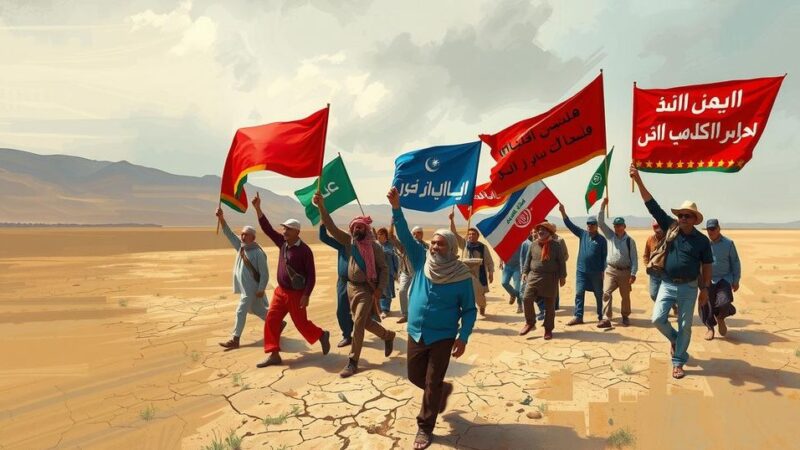Gatundu North MP Elijah Njoroge Kururia disclosed that President William Ruto and the Ministry of Foreign Affairs contacted Vietnamese officials regarding Margaret Macharia Nduta’s impending execution for drug smuggling. Nduta’s case has drawn national attention in Kenya, prompting calls for government intervention. Despite attempts to secure clemency or a reduced sentence, challenges persist due to Vietnam’s strict drug laws and the time-sensitive nature of the situation.
Gatundu North Member of Parliament, Elijah Njoroge Kururia, has disclosed that President William Ruto and the Ministry of Foreign Affairs have contacted Vietnamese authorities regarding the imminent execution of a Kenyan citizen, Margaret Macharia Nduta. Nduta faces the death penalty in Vietnam, stemming from her conviction for smuggling over two kilograms of drugs. Her arrest occurred at Tân Sơn Nhất International Airport in Ho Chi Minh City, a significant transport hub in Vietnam.
Nduta’s case has captured national attention in Kenya, with the populace urging the government to take action. With her execution set for Sunday, March 16, Kururia shared during a TikTok Live session that the government has made a desperate attempt to save her life. He confirmed, “I can confirm that the president and the Ministry of Foreign Affairs contacted Vietnam yesterday and are waiting for feedback.”
Despite these efforts, Kururia noted that the Vietnamese authorities have been resolute in their stance. Addressing concerns, he stated, “The Vietnamese authorities have remained adamant. I’ve seen many people asking if the president is aware—yes, he is, and the government is awaiting a response.” On March 6, the Ho Chi Minh City People’s Court sentenced Nduta to death, emphasizing Vietnam’s stringent position on drug-related offenses.
According to court records, Nduta was allegedly offered $1,300 (approximately KSh 167,000) to transport illicit drugs, a claim she firmly contested during the trial, asserting she believed she was carrying legitimate products. The Kenyan government might seek to intervene on her behalf through diplomatic channels, asking the Foreign Affairs Ministry and the Kenyan Embassy to formally petition Vietnam for clemency or a reduced sentence.
Alternatively, Nduta’s legal team may submit an appeal within Vietnam’s judicial framework to challenge her death sentence; however, this is improbable without the emergence of new evidence that supports her claims. Additionally, President Ruto could directly appeal to Vietnam’s leadership on humanitarian grounds, though Kenya’s limited diplomatic presence in Vietnam may impede Nduta’s chance of evading the death penalty, particularly as time grows short.
In conclusion, the situation surrounding Kenyan citizen Margaret Macharia Nduta’s impending execution in Vietnam has prompted action from the Kenyan government. Despite efforts by President Ruto and the Ministry of Foreign Affairs, challenges remain due to the Vietnamese government’s firm stance on drug offenses. The possibility of diplomatic intervention and legal appeals are being considered, yet the likelihood of success is uncertain as the execution date approaches. This urgent matter highlights both the complexities of international law and the importance of diplomatic relations.
Original Source: www.kenyans.co.ke






